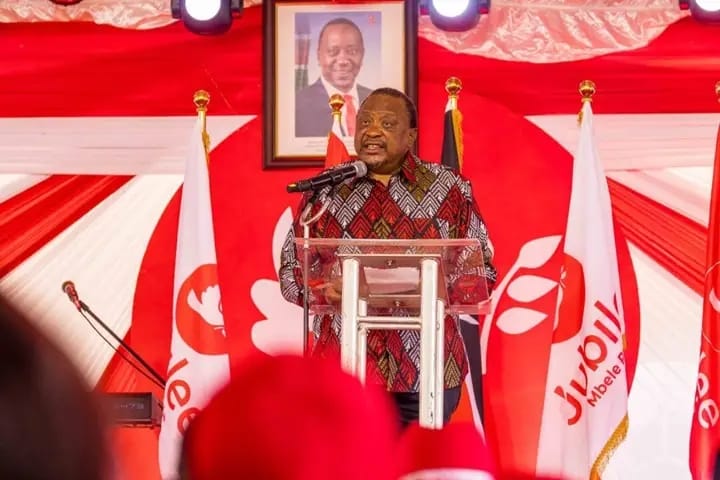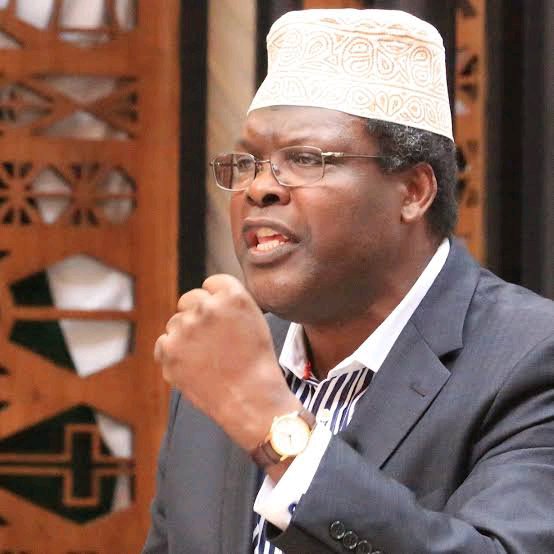
On September 26, 2025, the Jubilee Party convened a Special National Delegates Conference at the Jockey Club, Ngong Racecourse in Nairobi. The meeting started at 8:00 am under the leadership of former President Uhuru Kenyatta, who has recently reestablished himself as the de facto head of the party after internal legal battles vindicated his leadership.
The venue was thick with Jubilee delegates from across the country – MPs, county leaders, party stalwarts, and grassroots organisers – many of them arriving early to take their seats under the shade of the trees that fringe the Ngong paddocks. Flanked by party lieutenants including Secretary‑General Jeremiah Kioni, Uhuru opened the conference by reading a status report from the party’s National Executive Committee.
As Uhuru addressed the assembly, his tone turned pointed when the discussion shifted inevitably toward the performance of the current Ruto administration’s flagship projects. He was respectful, but firm, in undercutting some of the government’s promises. He emphasised that Jubilee policies – from Jubilee’s infrastructure programmes, social welfare commitments, and internal party reforms – had laid foundations that now appeared neglected or stalled under the present regime. He warned that many of President William Ruto’s projects, while grand in announcement and scale, lacked consistent follow‑through, fiscal clarity, or local ownership.
For example, Uhuru questioned the sustainability of some infrastructure projects in remote constituencies, citing lack of maintenance budgets and irregular accountability reports. He also subtly contrasted Jubilee’s earlier projects (roads, healthcare facilities, housing) with what he framed as “photo‑op projects” of the current government, intended more for optics than long‑term impact. He did not deny that some projects had value, but insisted that the people of Kenya deserve better: that promises be converted into functioning roads, health centres that are operational, schools with teachers, water supplies that run year‑round, and other deliverables beyond ribbon‑cuttings.
He called on Jubilee delegates to demand greater transparency in government procurement, to monitor and publicise progress on public projects, and to ensure that any project begun is seen to completion and maintained. The message was clear: Jubilee under his leadership would provide critical oversight, acting as a moral and political counterweight to the administration’s claims of development.
Following his speech, Uhuru presided over debates in committee about the Jubilee Party’s own constitution, organs, and programs – including proposals to strengthen internal auditing, to integrate community feedback mechanisms for monitoring public works, and to amplify the voices of county delegates in tracking local project implementation.
The atmosphere in Ngong was a mix of enthusiasm among Jubilee delegates who felt revived under Uhuru’s firm leadership, and tension — particularly among those loyal to the current government — as some in the audience murmured about the risk of alienating moderate supporters. But Uhuru closed the meeting by underscoring the party’s mission: to be a party of principle, not merely one of protest. He declared that Jubilee would sharpen its political identity ahead of the 2027 general elections, not by false promises, but through measured policy critique, engaged oversight, and service to the people.

